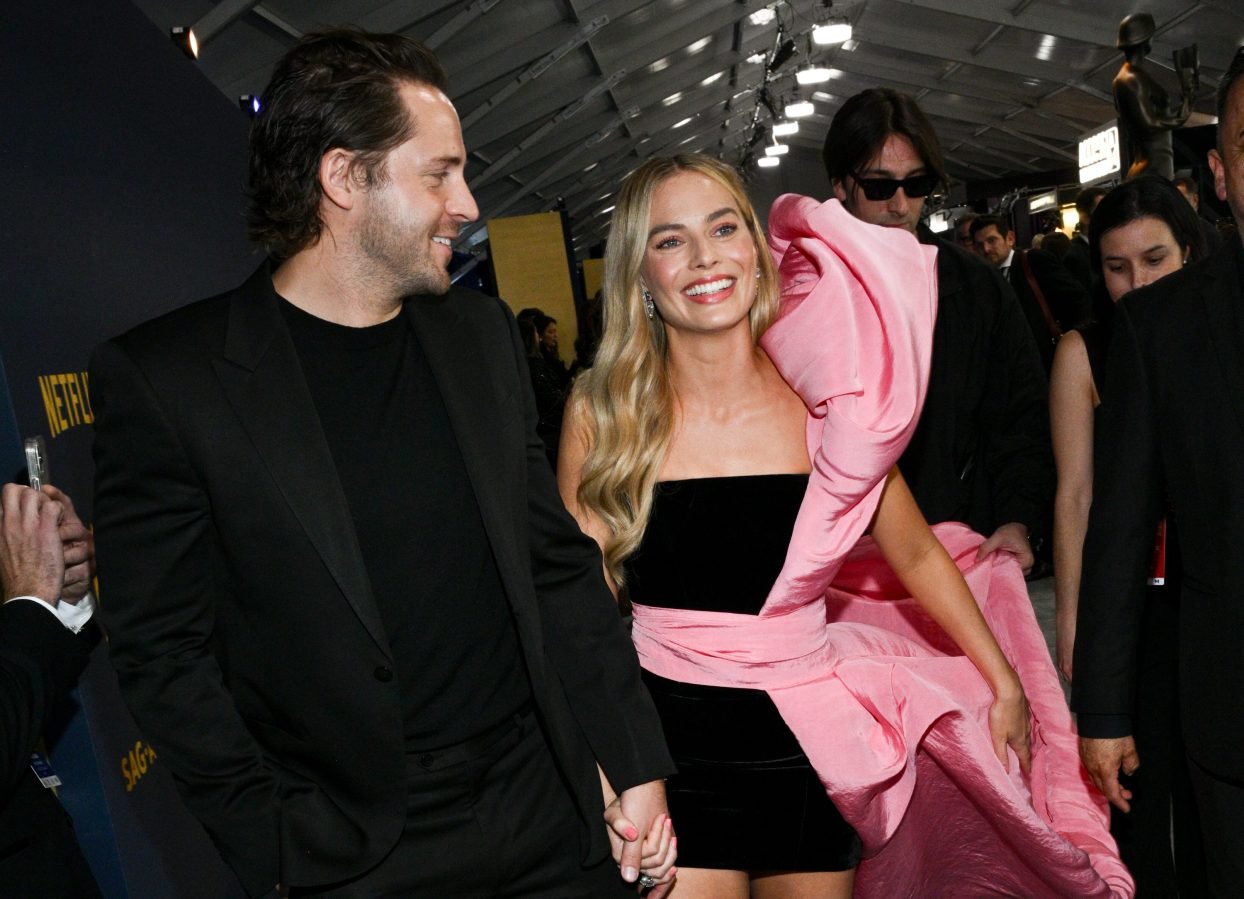Creating a hit series like South Park, Law & Order or The Big Bang Theory is worth a fortune, but a new breed of producers is still getting rich in a fractured television economy by creating shows that are born to re-run.

“The yacht money is gone,” a veteran entertainment manager says of the deals top TV producers are offered today. Five years ago, at the peak of the so-called “streaming wars,” studios and technology companies, bolstered by low interest rates and Wall Street optimism, were locked in an arms race for subscriber growth—seemingly at any cost. The number of scripted TV shows on broadcast and streaming in that period surpassed 500 for the first time, and for those creators whose content that broke through to mainstream popularity, the dollar amounts had a lot of zeroes. At least a dozen showrunners signed nine-figure deals during that window, and another dozen landed more than $50 million across four- or five-year contracts.
Now, with the majority of those deals having expired or set to end in the coming months, the same creators are emerging into a very different TV landscape. The effects of the pandemic, two Hollywood strikes and widespread corporate cost cutting—not to mention the lack of hits produced on some large showrunner deals—have cratered the market for overall deals, show orders and licensing deals.
For the winners at this Sunday’s 2024 Emmy Awards, it will be gold-plated trophies and not outsized paydays that are the big prize at the end of the red carpet.
There are still, however, a few showrunners whose earnings defy gravity—the older generation of creators who own a percentage of the $100 million or more in profits thrown off each year by mega-hits like The Simpsons or The Big Bang Theory.
Of TV’s highest-paid showrunners for 2024, five creators made more than $100 million in the past 12 months, even after paying fees to agents, managers and lawyers. South Park’s Matt Stone and Trey Parker, BET super-producer Tyler Perry, Law & Order’s Dick Wolf, The Simpsons’ James L. Brooks and Matt Groening, and The Big Bang Theory’s Chuck Lorre account for more than half of the $1.2 billion collected by the top 20. The disparity would be even greater with the addition of Friends’ producers Kevin Bright, Marta Kauffman and David Crane, but eligibility was restricted to showrunners who had a new show on the air in the past year.
Because traditional profit participation and syndication has been mostly eradicated in the streaming era, and the number of episodes produced by each shows has sharply declined, there is little potential for the astronomical success enjoyed by past generations of producers.
In order to justify their ongoing value to studios and streamers, today’s showrunners have become something closer to mini-studio heads, overseeing a small universe of shows and projects for a platform. Producers as prolific as Yellowstone’s Taylor Sheridan or American Horror Story’s Ryan Murphy can still command big totals. These “godfather” producers are handsomely paid on any project they are associated with, regardless of their level of involvement. It’s a big reason why the top 20 showrunners only include three producers under the age of 50— Parks and Recreation’s Michael Schur (48) and Westworld’s Lisa Joy (47) and Jonathan Nolan (48)—compared to five over the age of 70.
For the younger generation of showrunners, who are coming of age in this new TV environment and are often still on their first hit show, overall deals almost never exceed $10 million, with per-episode fees charged off against that total. This new crop, who are generally more diverse in terms of race, gender and sexual orientation, have little chance of reaching the upper echelon of earnings in the near future.
Still, fortunes turn quickly in Hollywood, and this weekend’s Emmys represents a big step toward minting future super-producers. In the meantime, these are the showrunners who lead the way.
1. $162 million ($180 million gross)
Matt Stone and Trey Parker

The duo behind Colorado’s potty-mouthed elementary schoolers are still the industry pace-setters thanks to the all-encompassing six-year, $935 million deal they inked with ViacomCBS in 2021 for ongoing rights to South Park. Parker and Stone said in a recent Vanity Fair interview that they are pausing production on the show until after the 2024 presidential election (“I don’t know what more we could possibly say about Trump,” Parker said), but their long-running musical The Book of Mormon is still going strong on Broadway, in London’s West End, and in Australia beginning in 2025.
2. $136 million ($147 million gross)
Tyler Perry
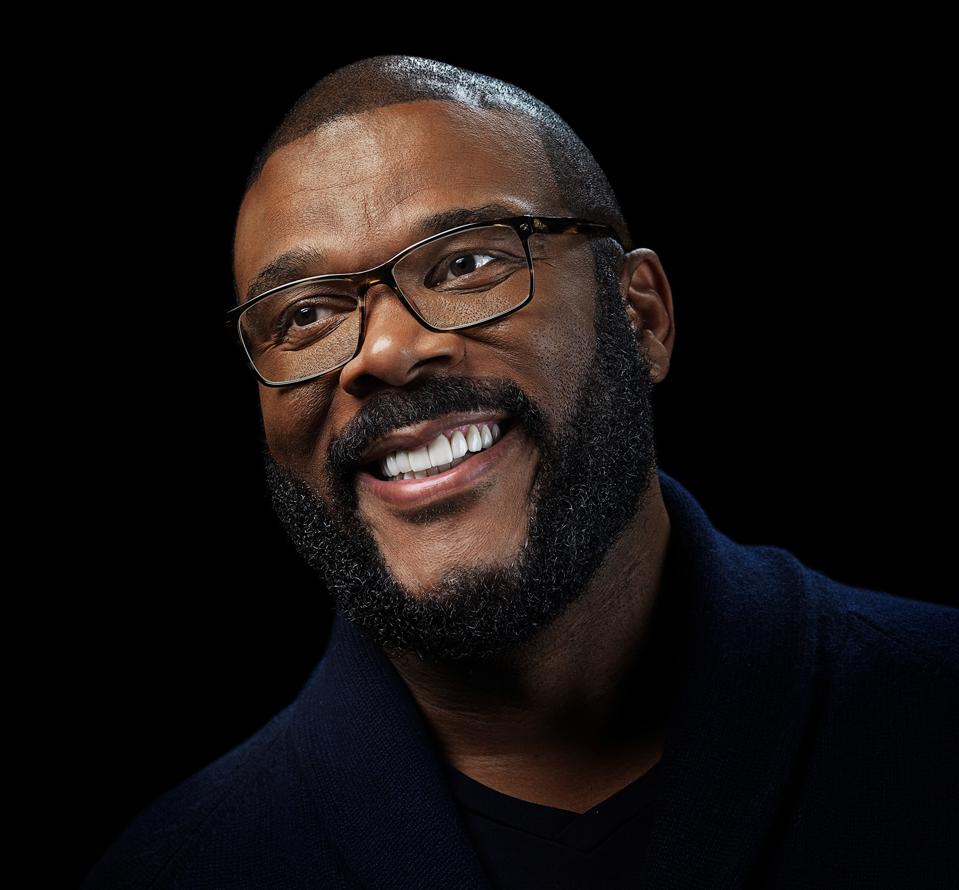
“Ownership changes everything,” Perry told Forbes in 2020. From the comfort of his 330-acre Tyler Perry Studios lot on the outskirts of Atlanta, the 54-year-old billionaire creates and owns the rights to all of his content. He licenses it out to broadcast networks and distributors like BET, where he aired 10 shows in the past year (among them House of Pain and Sistas). He also released three films (two on Amazon, one on Netflix) and has gradually retaken control of the rights to his back library, including the iconic Madea franchise, which produces millions in profits.
3. $135 million ($143 million gross)
James L. Brooks and Matt Groening

With more than 750 episodes across 35 years and counting, Springfield’s first family, The Simpsons, show no sign of slowing down. Neither does the cash, with Brooks and Groening (co-creator Sam Simon passed away in 2015) pocketing executive producer fees each year despite little involvement in ongoing production of the animated half hour, now in its 36th season. Even more valuable is the show’s extensive library, which has generated north of $1 billion from its streaming deal with Disney+ since 2019. Meanwhile, Groening’s cult-favorite Futurama, returned to Hulu for its 12th season in July.
4. $124 million ($146 million gross)
Dick Wolf
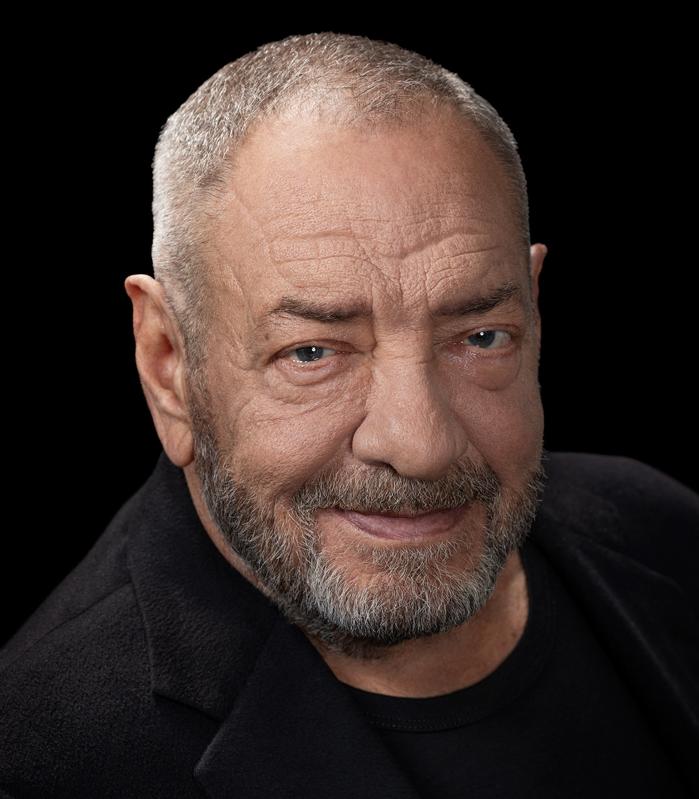
Wolf’s police procedural empire has a stranglehold on the network broadcast schedule, with a triple-stack of Chicago shows programming NBC’s Wednesday lineup and a trio of FBI shows doing the same for CBS on Tuesdays, not to mention his flagship Law and Order and its spin-off SVU pushing 25 seasons (a third Law and Order show, Organized Crime, was moved to Peacock). The strike-shortened seasons probably hurt Wolf more than any other showrunner, but don’t feel bad for the 77-year-old broadcast king—Forbes named him a billionaire in January.
5. $110 million ($130 million gross)
Chuck Lorre

Lorre benefits from legacy deals made during linear TV’s heyday, with his Two And A Half Men, The Big Bang Theory and Young Sheldon continuing to produce huge profits. A single percentage point of profit participation in Big Bang paid out as much as $5 million in the past year, depending on deal terms, and Lorre controls more than one. Although Young Sheldon and his CBS romance Bob Hearts Abishola wrapped up their series finales in the past year, Lorre remains prolific for Warner Bros., debuting the 10-episode Bookie for Max last fall and a second Big Bang spinoff, George & Mandy’s First Marriage coming to CBS in October.
6. $76 million ($101 million gross)
Seth MacFarlane

MacFarlane capitalizes on both the new and old economics of TV, continuing to enjoy big profits from Fox for writing, voicing and producing more than 400 episodes of Family Guy and 300 episodes of American Dad, while also taking an overall deal at Universal Television in 2020 worth $40 million per year to develop new projects, including a reimagining of his Ted movie franchise as an eight-episode series for Peacock.
7. $58 million ($68 million gross)
Shonda Rhimes
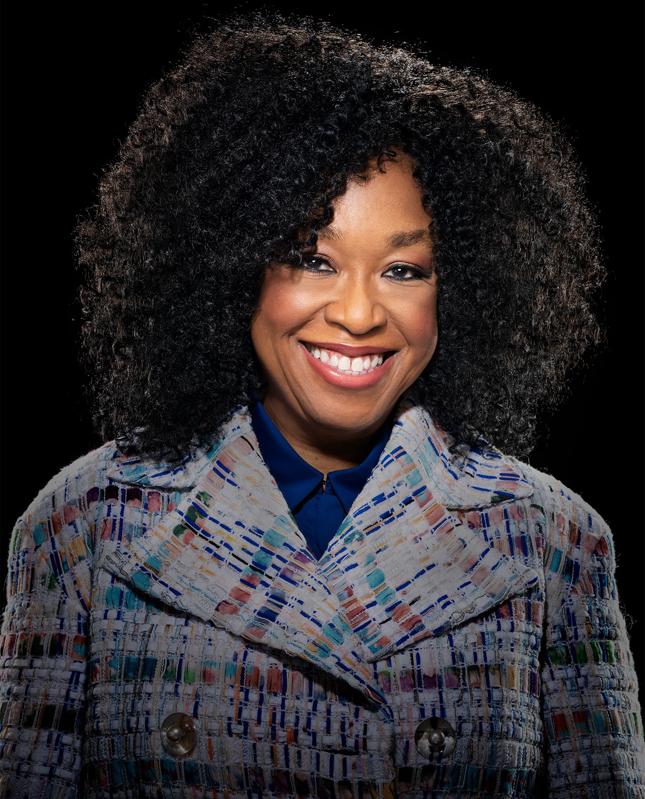
The fourth seasons of Rhimes’ steamy costume drama Bridgerton broke viewership records for Netflix this summer, paying off an ongoing mega-deal with the streamer that is structured with bonuses and incentives that reward her in success. And her previous TV roster at ABC, which included Scandal and How To Get Away With Murder, is still going strong with season 21 of Grey’s Anatomy premiering later this month.
8. $48 million ($56 million gross)
Larry David

For someone who has made a career out of complaining about work, the 77-year-old comedian stays remarkably busy. David wrote and starred in the 12th and (probably) final season of Curb Your Enthusiasm in the spring, and this fall has announced a 10-city tour of “informal conversations” with different moderators, including Peyton Manning. And the Seinfeld co-creator’s original show is still as popular as ever on Netflix, where it earns an estimated $100 million per year for exclusive streaming rights. In other words, it’s been a pretty, pretty, pretty good year.
9. $47 million ($55 million gross)
JJ Abrams

When Warner Bros. signed up Abrams’ Bad Robot to a five-year, $250 million mega-deal in 2019, it envisioned an inter-connected universe of D.C. comic book shows and the sci-fi series Demimonde—neither of which came to fruition. Still, the 58-year-old Abrams oversaw the Apple TV+ hit Presumed Innocent and Amazon’s animated Batman: Caped Crusader in the past year, enough to earn a renewal from Warners for a smaller figure. Abrams also still receives sizable checks from his work on the Star Wars and Mission: Impossible movie franchises.
10. $40 million ($47 million gross)
Greg Berlanti

The 52-year-old Berlanti sold his stake in past and future profits of his TV catalog during a 2018 deal with Warner Bros.—an all-in strategy rumored to be motivated by a desire to surpass Ryan Murphy’s Netflix haul, which he did to the tune of more than $300 million. At the time, Berlanti was setting records for most shows on the air at one time—18 during the 2019 season—most of which were produced as part of the D.C. comic universe for The CW, including Arrow and The Flash. Despite the network cancelling most of its original programming last year, Berlanti remains busy with a first-look movie pact with Netflix, which yielded the Jennifer Lopez-fronted Atlas in May. He also directed the Apple-backed space race drama Fly Me To The Moon, which bombed at the box office in July.
11. $36 million ($48 million gross)
Taylor Sheridan

The man who made Westerns cool again got his start in the genre, with recurring acting roles in shows including Walker, Texas Ranger and screenwriting credits on modern Western-set movies Sicario and Hell or High Water before hitting real pay dirt with the Kevin Costner-led series Yellowstone. Thanks to a quirk in corporate strategy, his show still streams on Peacock, but Sheridan now dominates the Paramount+ library with so many spin-offs that he can charge Paramount to film scenes on his ranch and rent out his horses. The only hitch, it seems, is how to wrap up his flagship series, which has gone through a very public break-up with Costner and been off the air for two years.
12. $34 million ($40 million gross)
David Benioff and D.B. Weiss

From their perch on TV’s iron throne, Benioff and Weiss followed their success on the world-conquering Game of Thrones by setting up their next kingdom at Netflix with an estimated five-year, $200 million pact in 2019. That deal yielded only one show, the sci-fi series 3 Body Problem, an Emmy nominee that was reportedly one of the streamer’s most expensive programs to date. Netflix quietly renewed the deal at a far more modest price to allow the duo to complete it with two additional seasons.
13. $26 million ($30 million gross)
Ryan Murphy

Murphy was among the first showrunners to enjoy a monster deal when he moved from Fox to Netflix in 2018 for a reported $300 million over five years, a precedent-setting number across the industry. But he was also the first to experience the reality waiting on the other side. His new deal with Disney, reuniting him with former Fox boss Dana Walden, is worth less than half, even after taking out advances against future back-end profits of his ongoing shows like American Horror Story, Glee and 9-1-1.
14. $25 million ($33 million gross)
Greg Daniels

A veteran Saturday Night Live and Simpsons writer, Daniels is now playing the hits, developing a reboot of The Office and reviving the animated hit King of the Hill in early 2025 alongside co-creator Mike Judge (Parks and Recreation, which Daniels co-created with Michael Schur, is being left alone—for now). The original versions of each of those shows continue to produce healthy profits, especially the Steve Carrell-led workplace comedy.
15. $24 million ($27 million gross)
David E. Kelley

The 68-year-old Kelley is the only member of this list without an overall deal, preferring instead to operate as a mercenary selling off his shows individually, which, in the past year, included Presumed Innocent for Apple TV+ and A Man In Full for Netflix. Kelley, who was once a syndication king of the 1990s, with hits including Ally McBeal and The Practice, has reinvented himself in the streaming era as a limited series guru, continuing to write most of his own episodes for splashy event titles such as Big Little Lies, Nine Perfect Strangers and The Undoing.
16. $23 million ($27 million gross)
Alex Kurtzman

It’s Kurtzman’s responsibility now to make sure the Star Trek universe lives long and prospers, with five series (Discovery, Prodigy, Strange New Worlds, Picard, and Lower Decks) running concurrently in the past few years. His six-year, $150 million deal with CBS Studios doesn’t expire until 2026, by which time he is slated to have new seasons of two existing shows, launch an additional Star Trek series as well as a made-for-TV movie.
17. $21 million ($25 million gross)
Lisa Joy and Jonathan Nolan
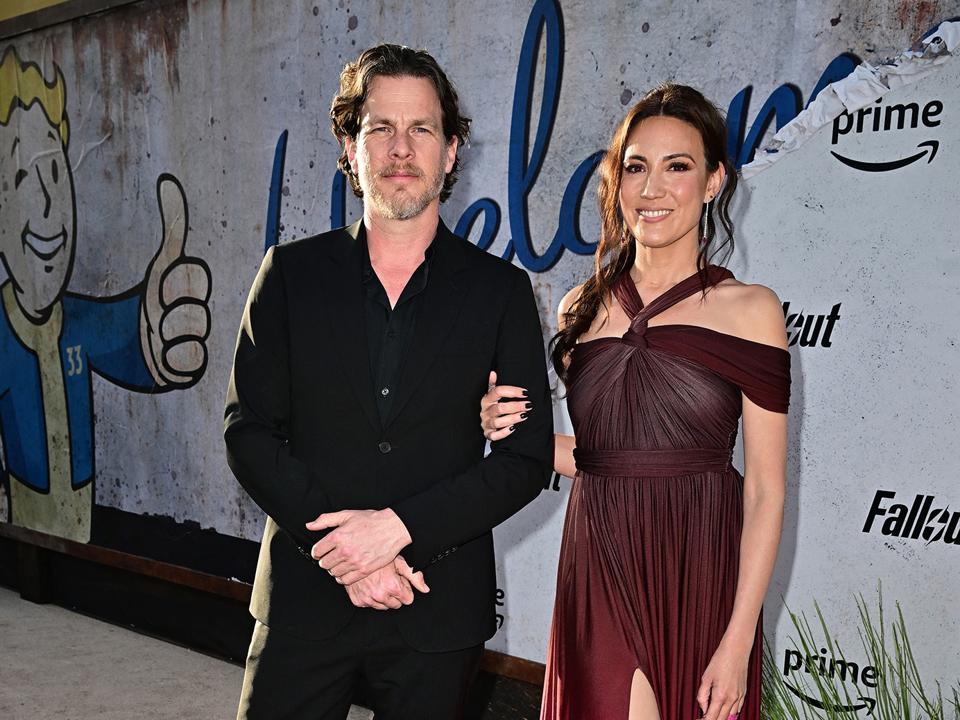
The Westworld creators’ $30 million-a-year deal with Amazon ended in April, and was reportedly renewed as a first-look deal (rather than a true exclusive) for far less money. Still, they were heavily involved in Fallout, a breakout hit for the streamer in April. Nolan also sees profits for his work on his brother Christopher’s movies, including screenwriting credits on The Prestige, The Dark Knight and Interstellar.
18. $21 million ($22 million gross)
Bill Lawrence

Lawrence, who created Scrubs, has enjoyed a renaissance on Apple TV+, for whom he helped develop a soccer commercial into the streamer’s biggest show to date, Ted Lasso, as well as the Harrison Ford-led Shrinking and the Carl Hiaasen adaptation Bad Monkey. Lawrence’s estimated five-year, $100 million deal with Warner Bros., signed in 2022, leveraged Apple’s interest in signing him away from his longtime home with the WB.
19. $20 million ($27 million gross)
Michael Schur

After working his way up to co-executive producer on later seasons of The Office, Schur launched a string of his own feel-good workplace comedies in Parks and Recreation, Brooklyn Nine-Nine, The Good Place and most recently executive produced HBO’s Hacks, which racked up a slew of Emmy nominations. His nine-figure extension with Universal Television, where he’s worked since 1998, expired this year.
20. $19 million ($25 million gross)
Tina Fey
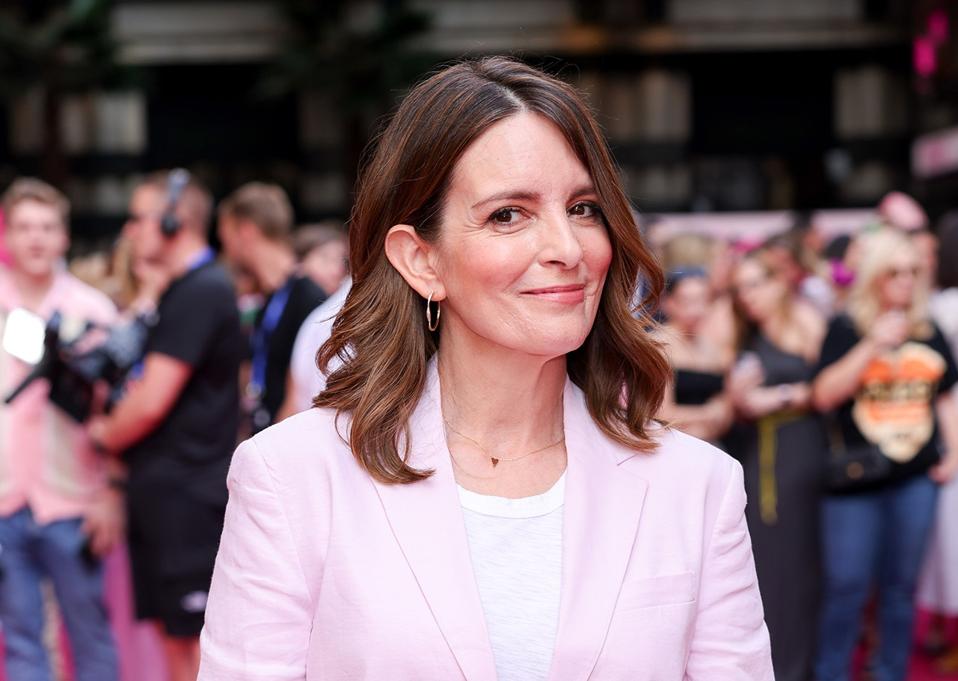
Fey’s been doing more than just working on her night cheese. The Mean Girls godmother, SNL alum and showrunner behind 30 Rock executive produced the musical comedy series Girls5Eva (now in its second life, and third season, on Netflix) as well as the animated apocalypse series Mulligan. She also continues to star in films, like the Agatha Christie mystery A Haunting in Venice last fall, and in January, she brought a new musical adaptation of Mean Girls back to the big screen 20 years after the original hit theaters.
Methodology
Estimations were calculated through interviews with agents, lawyers, managers, executives and industry experts, as well as data sources such as IMDBPro. The figures represent pretax earnings for the period from September 1, 2023 to September 1, 2024— minus fees for representation (10% to agents, 10% to managers and 5% to lawyers)—per industry standard, unless otherwise reported. Many showrunners do not have all three, or compensate their representatives through show profits. The gross totals listed in parenthesis represent an estimate of all earnings before fees.
Only showrunners who had at least one show on the air during the past 12 months were eligible for consideration, however, eligible showrunners were credited for all income from past and present projects, including both TV shows and movies. The rankings only include earnings related to entertainment—writing, acting, producing, directing, etc., and not any entrepreneurial or other endeavors.
This article was originally published on forbes.com and all figures are in USD.
Look back on the week that was with hand-picked articles from Australia and around the world. Sign up to the Forbes Australia newsletter here or become a member here.

